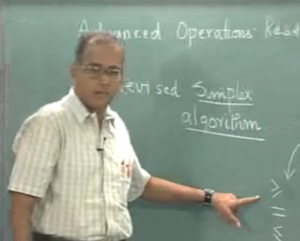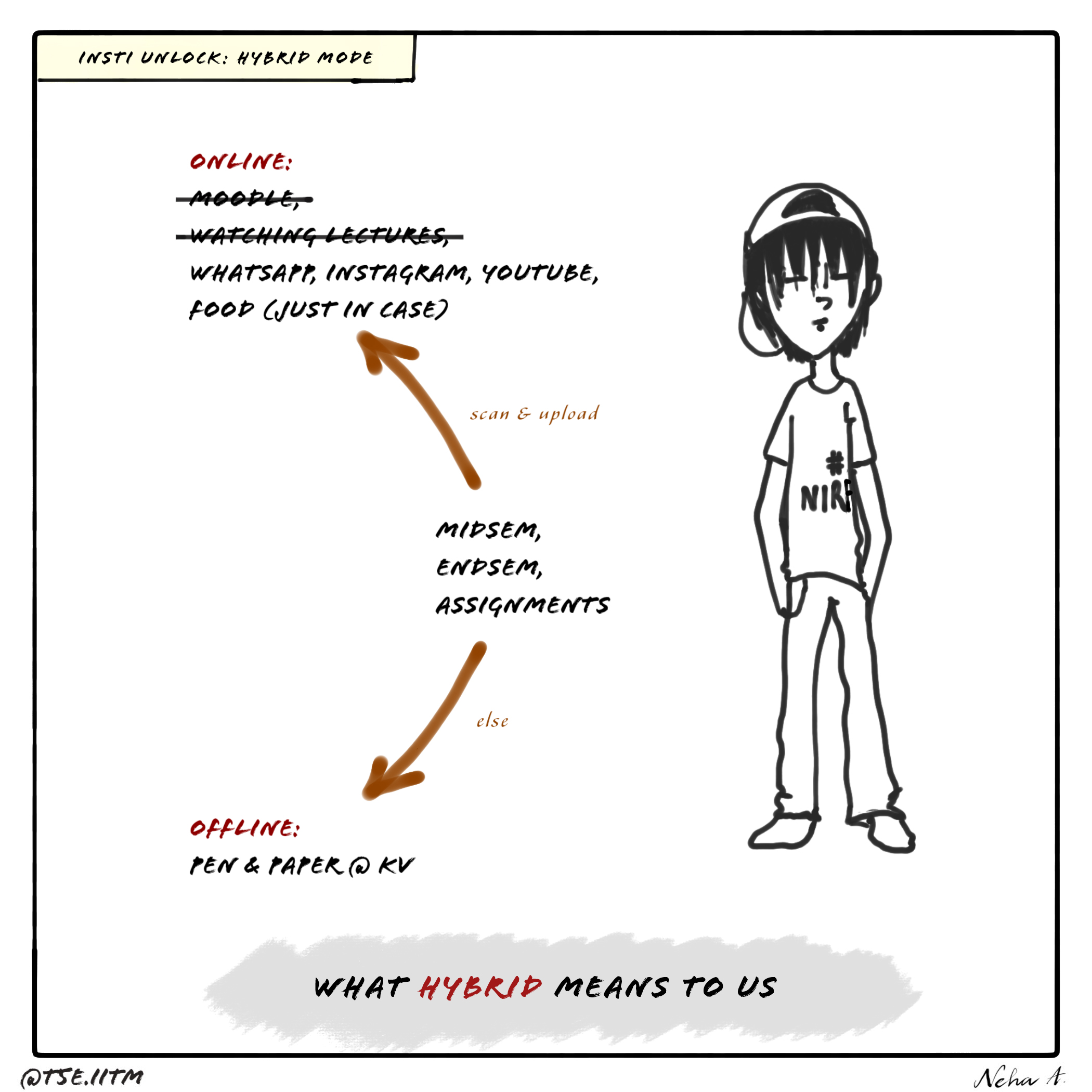T5E catches up with Prof.G.S., until recently the head of GCU. With decades of close interaction with students, there was no scarcity of old stories. (Interviewed by Manasa and Muski)

“Can we interview you now?” I asked G.S., who bore an almost-teenage expression as he looked up from his computer.
“Why not? But you promised me that we will have this in a more friendly location,” he said.
Thus it came to be that we made ourselves comfortable at Café Coffee Day while my companion, Manasa, explained to G.S. the purpose of the interview. As it happened, we went straight to business.
“What is the craziest thing you have ever done?” I asked.
G.S. smiled and thought for a while. “Okay, here goes one. I got particularly close to a guy called ‘Crap’. Once, this guy walked casually into my class 10 minutes late, with a cap on, wearing his goggles and without a notebook. I went up to him and told him that he should not come to a class with goggles but with a notebook. We’ve known each other well since then.
“Many a time I used to call him for coffee and he would say ‘Tarams!’, and there we would have the regular — two teas, a cigarette and a groundnut cake (chikki). Obviously, he was the one who had the cigarette,” he clarified quickly, smiling. “He used to drink. I seem to remember an occasion when after our trip to Tarams, having bid good byes, Crap, unable to stand upright, shouted back at me saying I made his day. I couldn’t help smiling!
“He had been preparing for CAT, and once asked me to pray to God for his success. I said I would do so provided he came to a temple with me after he got in. He agreed. It so happened that he got into IIM Bangalore and so, I took him to the temple.
“Before entering, however, Crap announced, in his own funny way, that he will go inside only if I accompany him to Shakti afterwards. Now, Shakti was a wine shop and, well, I did not drink. Nevertheless, I said yes. As soon as we came out of the temple he declared, ‘Straight to Shakti!’ and there we were, at Shakti, me feeling like a fish out of water.
Crap went to the top floor to check if it was clear of any of my acquaintances while I nervously looked around in the ground floor. Meanwhile a man in a lungi approached me and asked, ‘Are you going to drink here or at the top?’ I was baffled. Crap came back and said that he did not want to embarrass me any further and that we should hurry because there were people inside who must not know that I was there. And so we fled. It was a memorable trip, indeed.”
Amidst loud music and all the gabbing we sat in silence as G.S. began with another story, smiling wider now.
“One tree in Taramani was special. It had a concrete circular wall around it which also served as a bench for the smokers. The tree was fondly known as the Bodhi Tree. People had to pass through a cemented passageway called ‘the gateway to heaven’ in order to get to the tree. It was pitch dark during nights, so to find out if spots were vacant, one usually peeped in and sought for a red glowing dot in the dark (a lighted cigarrette) before he started heading through the gateway.
“There was this guy (let us call him X) who used to take my bicycle sometimes, although he had a car. For a while I kept wondering why, until I got to know that he was trying to teach his girlfriend how to cycle. She used to ride it while he jogged along with her.
After passing out of the institute, he returned one day and called me to Taramani. We were sitting under the Bodhi tree. Suddenly two people came hurling and screaming “Machi!” and hugged X. They were his juniors. They lit their cigarettes and started smoking when one of them realised that there is this elder man sitting along with them. X whispered to them, “That is G.S.” and lo! they stood up in trepidation. Not knowing what to do they greeted me hesitantly.”
“Did students come to your house often?” asked Manasa.
“Students used to stay in my house till 3:30 in the night to watch cricket. After which of course they dozed off and I too crashed with them on the floor. One of them even had the key to my house. I can recall an incident when the power went off late in the night and it was terribly hot. I tried to sleep but couldn’t.
“So I made my way to Saraswathi hostel at 12:30 AM. The guard wouldn’t let me in. He did so, reluctantly, only after I explained to him that I was a Professor. I went in to find people playing bridge. They were surprised to see me. I asked if I could crash in one of their rooms that night and they agreed. They woke me up early in the morning, and requested me to leave. They followed me back to my house to see if power had resumed. No, they weren’t looking after me; they wanted to see the India vs New Zealand cricket match!”
G.S. sipped his coffee while we were nibbling at the brownies he treated us to, while the nook we were sitting in felt warmer by time. But there was a lot more to ask.
“No cell phones, no internet … how was life back then?” I asked.
“It was a lot easier,” he said. “I used to slip away from my office and nobody could track me! Without cell phones students used to meet more often and interactions were healthier. Boyfriends had to tell their girlfriends to be at a particular place at a particular time.”
“Mess was the favourite meeting hub then. I was once invited to the then Narmada hostel mess by a bunch of students. These were the students of my Operations Research Class and had decided to have a short farewell party. They had joined several tables for about 30 of us to eat together. After lunch I was taken to a room, arguably the best kept room in Narmada — there was one chair in the middle for me, and nothing else; I sat, with some 10 more students seated around me while 20 others peeped in through the window.
We had a pretty long chat. At the end of the session as I was leaving one of them said ‘You got yourself ragged well, Prof.’”
He laughed. And then, one final question, a very typical one at that: “What is the single message that you would like to give to the students here?”
“I have never read much of Harry Potter but I remember a quote by J.K. Rowling from one of the books. It said ‘Your success in life depends not on what you want to do but what you choose to do.’ “



